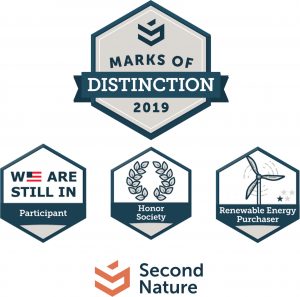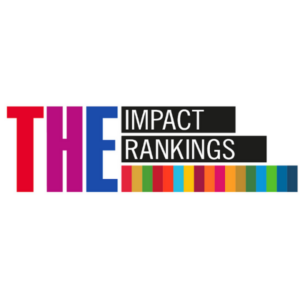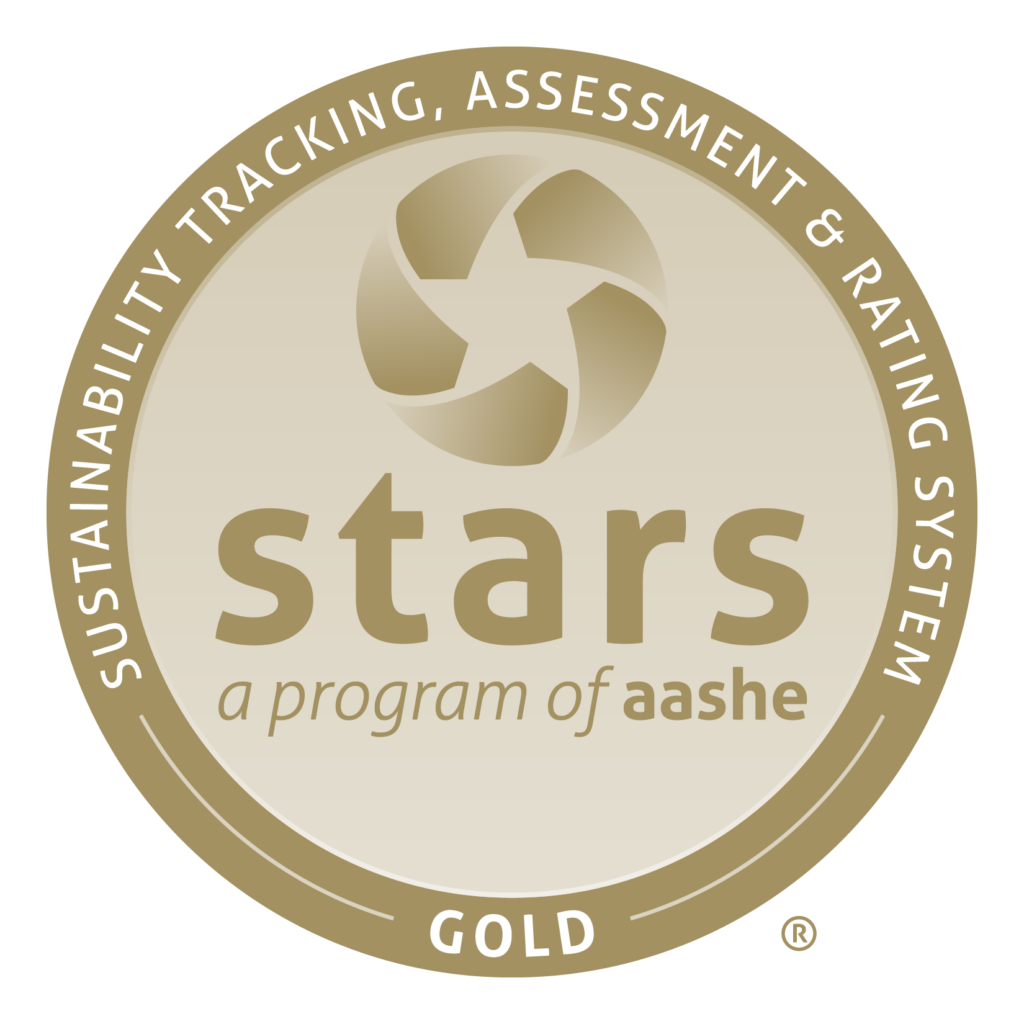The Office of Sustainability coordinates with campus stakeholders to participate and publish reports related to sustainability progress on campus. These various reports mark UMBC’s successes and outline where the university needs to increase efforts. The campus provides transparency and diligent data accuracy while streamlining the reporting to focus on the most material and measurable aspects of our work.
External Reporting
The President’s Climate Leadership Commitment, signed in 2007, integrates carbon neutrality with climate resilience and provides a systems approach to mitigating and adapting to a changing climate. Under this commitment, UMBC is required to maintain and update a Climate Action Plan and to annually report the university’s greenhouse gas (GHGs) emissions to the reporting platform. This annual reporting effort is conducted by The Office of Sustainability and Facilities Management in collaboration with the Climate Action Steering Committee.
The Times Higher Education Impact Rankings, established in 2019, are the only global performance tables that assess universities against the United Nations’ Sustainable Development Goals (SDGs). Rankings are based upon carefully calibrated indicators to provide comprehensive and balanced comparisons across three broad areas: research, outreach, and stewardship. UMBC’s rankings indicate that the university is considered a global leader in social and economic impact. This annual reporting effort is conducted by Institutional Research, Analysis & Decision Support (IRADS) with support from the Office of Sustainability.
UMBC participated in its first Association for the Advancement of Higher Education Sustainability (AASHE) sustainability tracking, assessment, and rating system (STARS) report in early 2020 in which UMBC earned a Silver rating. In 2022, UMBC earned a Gold rating. STARS is a transparent, self-reporting framework for colleges and universities to measure their sustainability performance. The STARS report is valid for three years and the data collected in the report is linked to the US News and World Report Green Colleges Rankings and the Sierra Cool Schools list. The triennial STARS report is conducted by the Office of Sustainability with the support of over 20 different campus stakeholders.
Internal Reporting
Starting in 2020, UMBC Sustainability began releasing an annual Sustainability Review. The review is designed to function as an annual report to highlight sustainability achievements from the previous year and to provide examples of what a sustainability engaged campus looks like.
The Review, acting as a snapshot, showcases the various sustainability and climate action initiatives that occurred at UMBC (both physically and virtually) the past academic year. The office invites you to explore the report and to contact us with any questions.
The Eco-Ambassador (EA) program is one of the longest-standing sustainability programs at UMBC. To honor the hard work of the Ambassadors, UMBC Sustainability has begun to release an annual EA Impact Report. The report showcases their sustainability campaigns and events from this past year.
The Sustainability Literacy Assessment is administered to the university at the start of each fall semester as part of the sustainability survey. Sustainability literacy questions typically include right/wrong questions and focus on overall knowledge of sustainability topics and challenges. Sustainability literacy assessments are designed to assess student understanding of the interconnectedness of social, economic, and environmental issues and challenges, and not just knowledge about the environment or environmental problems. The results help UMBC to evaluate the effectiveness of its sustainability initiatives and develop insight into how these initiatives could be improved.
Greenhouse Gas Reporting
Each year, UMBC measures the greenhouse gas emissions associated with the operation of our campus to better understand our direct contribution to the heat-trapping gases in the atmosphere – the gases contributing to global climate change. This basis informs our carbon reduction strategies and allows for tracking progress over time. Please visit Second Nature’s reporting platform for UMBC’s GHG Report Summaries.
In 2020, UMBC continued to advance toward and surpass its goal of 25% reduction in emissions by 2025 and net zero emissions by 2050. Overall net emissions are now 44% below UMBC’s 2007 baseline. This reduction was driven in part by gains in building-level energy efficiency investments, operational efficiency of the Central Plant, improvements in the Maryland regional electricity grid, purchase of Renewable Energy Credits, and a temporary de-densification of campus due to COVID-19.
Explore UMBC’s 2020 GHG Inventory in detail via the expander below. Also, explore all our sustainability data on our UMBC Sustainability Dashboard.
2020
Recap of 2020
In 2020, UMBC continued to advance toward and surpass its goal of 25% reduction in emissions by 2025 and net zero emissions by 2050. Overall net emissions are now 44% below UMBC’s 2007 baseline. This reduction was driven in part by gains in building-level energy efficiency investments, operational efficiency of the Central Plant, improvements in the Maryland regional electricity grid, purchase of Renewable Energy Credits, and a temporary de-densification of campus due to COVID-19.
It is estimated that UMBC’s FY 2020 carbon footprint was reduced by 7,037.78 MTeCO2 in Scope 3 emissions alone due to the travel restriction policies placed during the pandemic.




